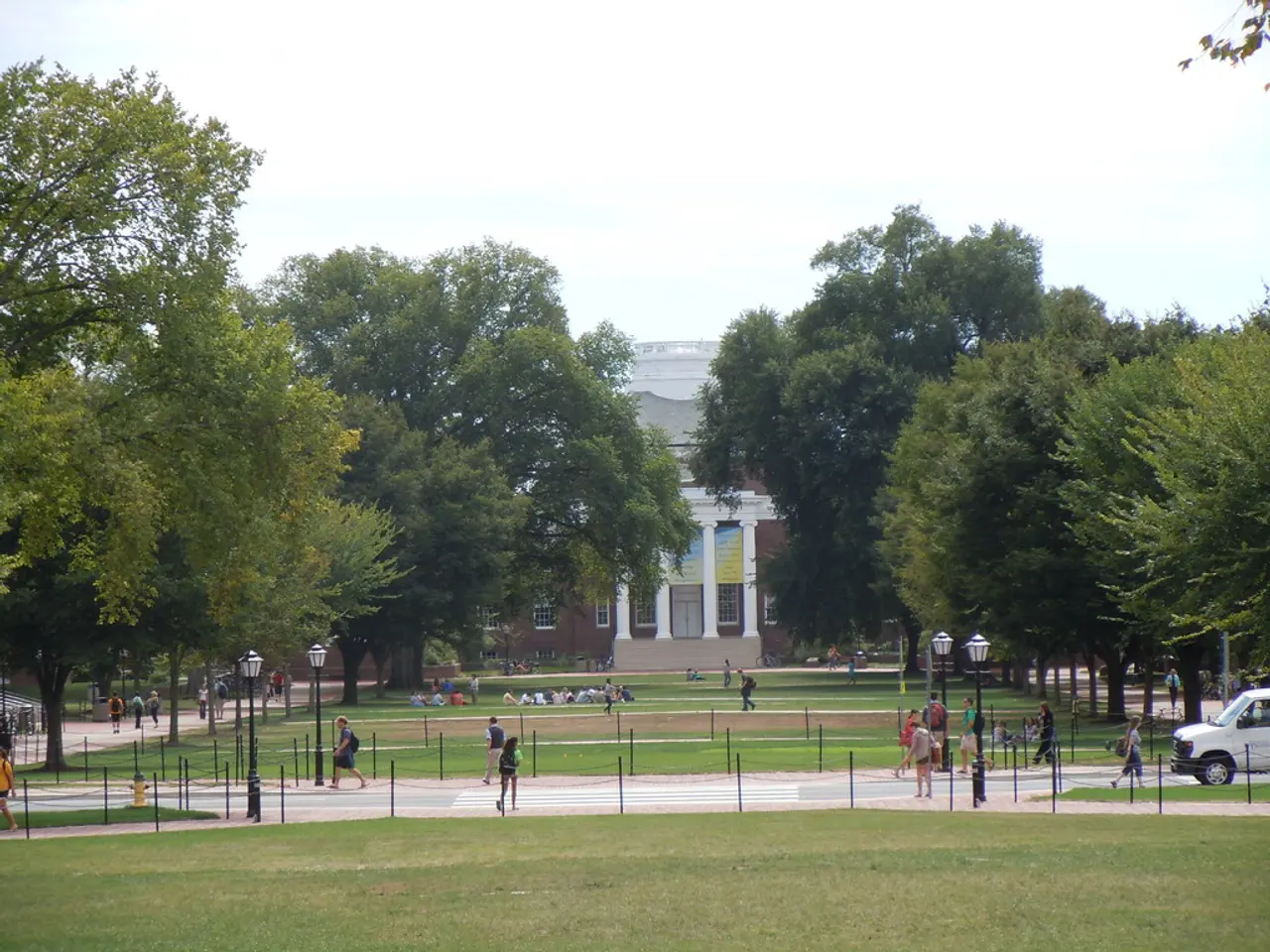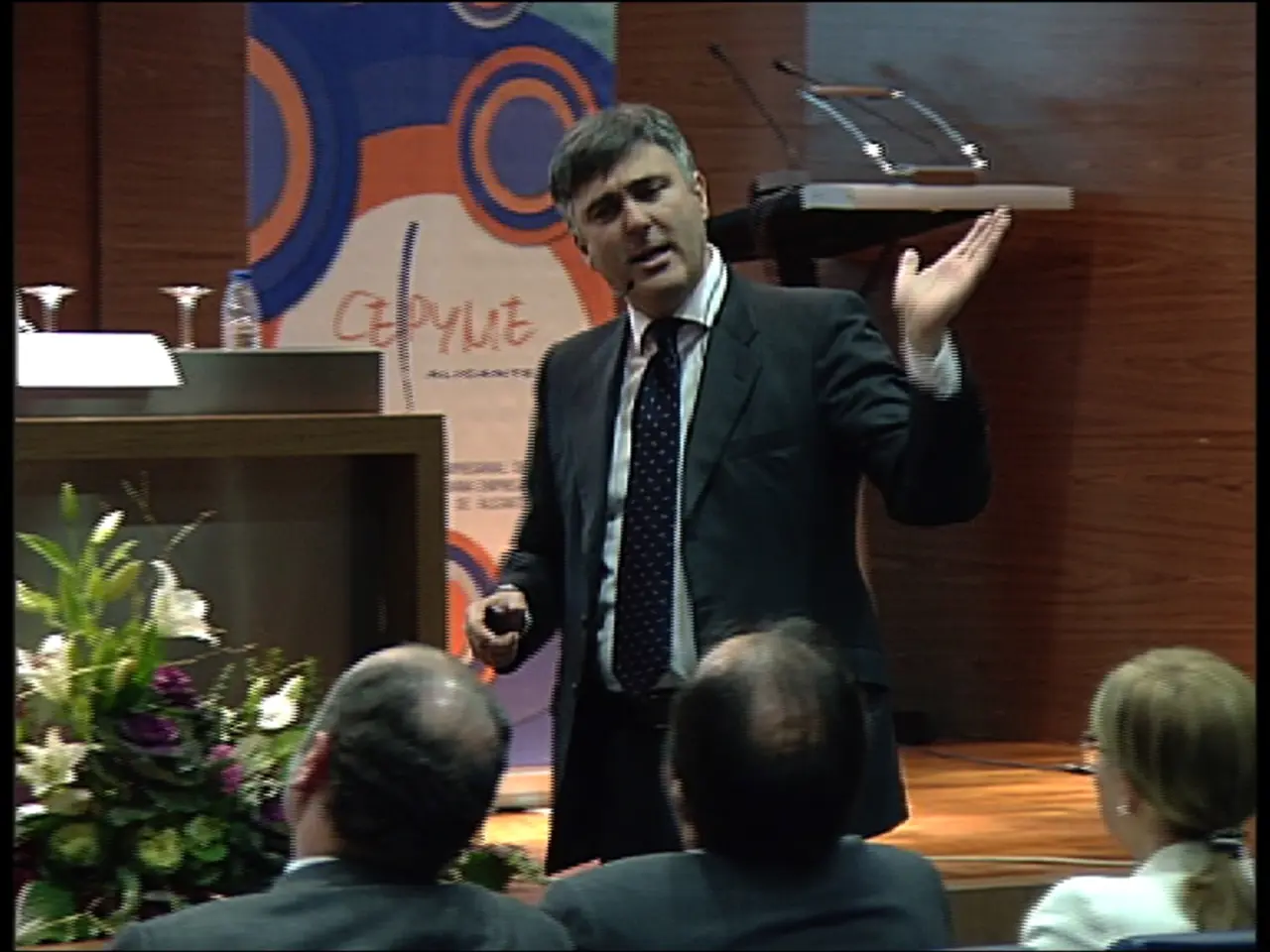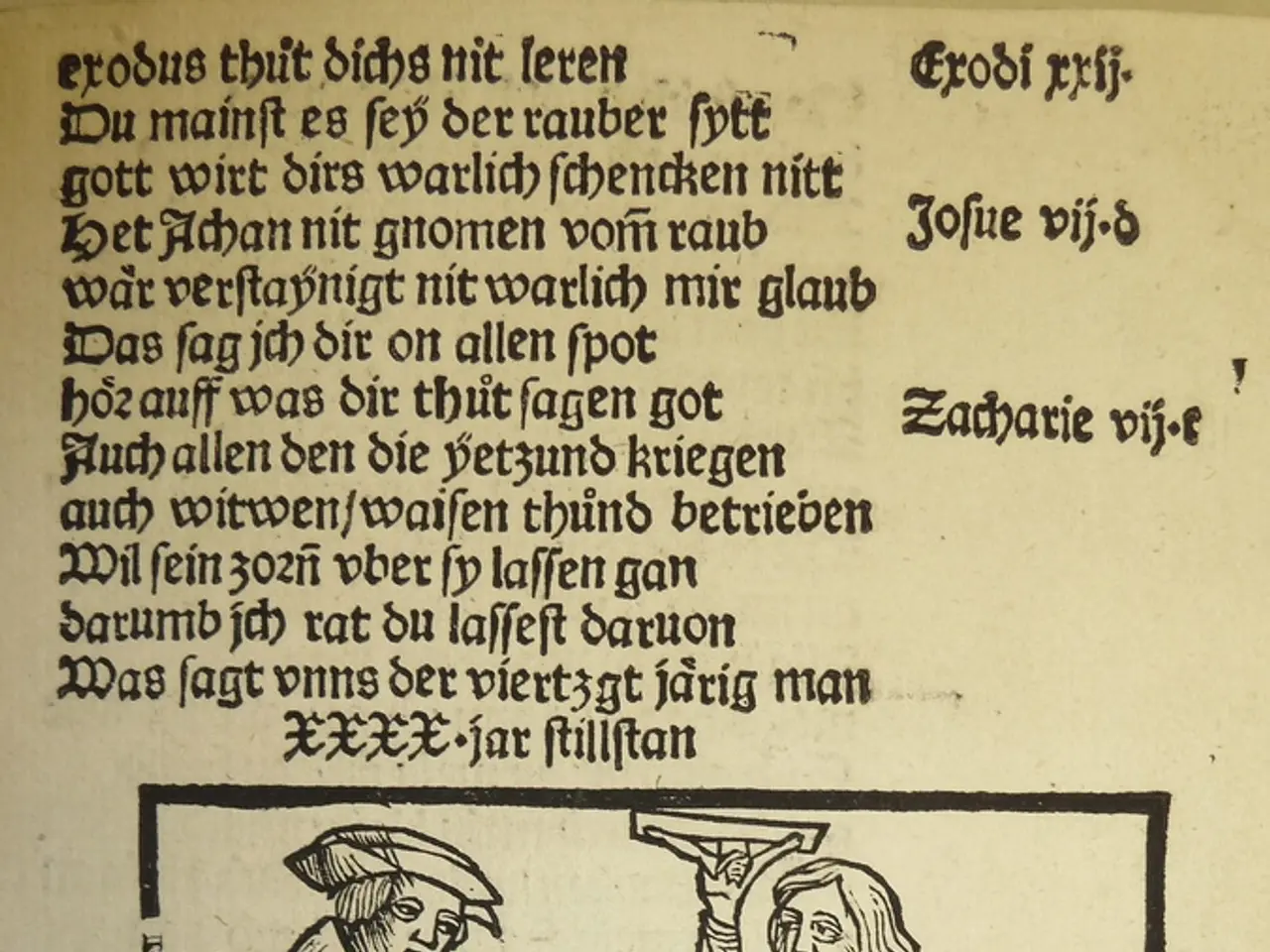SPD Urges Swift Action on AfD Ban: A Closer Look at the Procedure
SPD officials contemplate imposing a ban on the AfD party. - European Parliament Passes Resolution on the Plight in Ex-Yugoslavia Regions
Here's a breakdown of the ongoing attempts to ban the far-right party Alternative for Germany (AfD), with a focus on the SPD's role, the Bundesverfassungsgericht, and the challenges ahead:
SPD: Taking a Stand Against AfD
The SPD, Germany's Social Democrats, are leading the charge to ban the AfD, expressing concern about the party's undermining impact on German democracy. The SPD's party executive has recently initiated discussions to gather evidence against the AfD and push forward a potential ban application[3]. This determination underlines the SPD's commitment to tackling the far-right threat through institutional and legal means.
Bundesverfassungsgericht: The Final Word
The German Federal Constitutional Court (Bundesverfassungsgericht) is the ultimate authority responsible for deciding party bans in Germany. The process requires substantial evidence that a party's activities contradict the democratic constitutional order. Previous rulings, such as the recent lifting of the ban on the far-right Compact magazine, have showcased the courts’ high evidentiary and proportionality threshold[1][2].
Similarly, the Bundesverfassungsgericht will need incontrovertible proof that the AfD's activities fundamentally oppose the democratic constitutional order. A federal court suspension of the Federal Office for the Protection of the Constitution’s classification of the AfD exemplifies the ongoing judicial scrutiny in these matters[1]. This careful approach reflects the courts' commitment to safeguarding democracy while respecting political freedoms like expression and participation.
Challenges Ahead: Chances of Success
Banning a political party in Germany is an exceptionally high legal hurdle aimed at preserving democratic pluralism. The courts' recent decisions upholding freedom of the press despite extreme views highlight the challenges in imposing bans while maintaining constitutional protections[2].
Despite the government's efforts to designate the AfD as extremist and curb its activities, the party enjoys strong electoral backing, having come second in the February 2025 federal election and significantly increasing its vote share[1][4]. These electoral successes complicate efforts to ban the party, as courts tread carefully to avoid intervening unnecessarily in sensitive political contexts.
In Conclusion
While the SPD's efforts to ban the AfD signify political will, the ultimate success of a ban remains tenuous, dependent on court rulings that balance constitutional protections and democratic stability[3]. The process involves gathering substantial evidence against the AfD and navigating opposing political interests and freedoms. This complex procedure demonstrates the enduring challenges in uprooting far-right ideologies from Germany's political landscape.
References:
- [1] "AfD under examination by German government," Deutsche Welle, June 2025.
- [2] "Far-right Compact magazine's ban lifted by court," Deutsche Welle, May 2025.
- [3] "SPD pushes for AfD ban procedure," Frankfurter Allgemeine Zeitung, June 2025.
- [4] "Electoral results show AfD gaining ground," ARD Tagesschau, February 2025.
The SPD's commitment to tackling the far-right threat through institutional and legal means involves gathering evidence against the AfD for a potential ban application, highlighting the importance of policy-and-legislation in the politics of general-news. The Bundesverfassungsgericht, responsible for deciding party bans, must provide incontrovertible proof that the AfD's activities contradict the democratic constitutional order, balancing the need to safeguard democracy while maintaining political freedoms like expression and participation.
In conclusion, the process of banning the AfD, despite the SPD's efforts, is an exceptionally high legal hurdle aimed at preserving democratic pluralism, with court rulings playing a crucial role in maintaining constitutional protections and promoting democratic stability.






